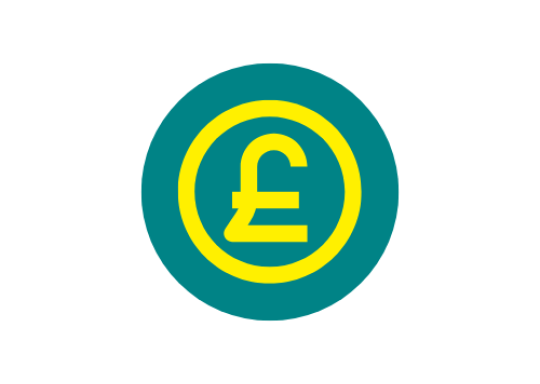Bedroom Tax
The bedroom ‘size criteria’ rule, or ‘bedroom tax’ as it is more commonly known, restricts the size of accommodation that universal credit or housing benefit can cover the rental costs for, based on the number of people in your household.
The bedroom tax applies if you are of working age and renting from a local authority, a registered housing association or other registered social landlord.
Working age means anyone between the age of 16 and pension age. You may be affected by the bedroom tax if you are a member of a couple and just one of you has reached pension age; you are not affected if you have both reached pension age.
The bedroom tax applies in Scotland, but the Scottish government has allowed for an extension of discretionary housing payments (DHPs) to cover tenants who would otherwise lose out. You need to apply for a DHP to receive this support. Similar measures apply in Northern Ireland.
Contents
Bedroom tax - number of bedrooms allowed
Bedroom tax: Rooms allowed with a qualifying disability benefit
Other ways you can get an extra bedroom
Disabled children and the bedroom tax
How the bedroom tax might affect you
Discretionary housing payments
More information on the bedroom tax

Want to donate?
These factsheets will always be free, so that everyone who needs them can access them, no matter what!
However, if you found them helpful and are able to, why not consider making a small suggested donation of £1 towards our work?
Bedroom tax - number of bedrooms allowed
One bedroom is allowed for:
- every adult couple (unless it is inappropriate for you to share a room because of disability and one of you gets a qualifying disability benefit, in which case two rooms would be allowed);
- any other adult aged 16 or over – including any son, daughter, stepson or stepdaughter serving away on operations as a member of the armed forces, who intends to move back in with you when they return;
- two children under 10, unless it is inappropriate for them to share a room because of disability;
- two children under 16 of the same sex, unless it is inappropriate for them to share a room because of disability;
- any other child (where, for example, there are three children under 10); or
- a non-resident carer or carers who regularly provide(s) overnight care for a disabled adult or child who is getting a qualifying disability benefit or attendance allowance at the lower rate. The carer(s), who must not be living with you, must be engaged to provide the overnight care and must need to stay overnight at your home on a regular basis. Only one additional bedroom is allowed, even if more than one carer is needed. For housing benefit, even if a qualifying disability benefit is not being paid, the local authority can accept alternative evidence that overnight care is needed – eg a letter from your GP.
Other circumstances where you can get an extra bedroom
Bedroom tax: Rooms allowed with a qualifying disability benefit
Qualifying benefits allow adult couples to have two bedrooms instead of the usual one. They also entitle a non-resident carer to a bedroom
The qualifying benefits are:
- the care component of disability living allowance or child disability payment at the middle or highest rate
- attendance allowance at the higher rate
- the daily living component of personal independence payment or adult disability payment
- armed forces independence payment
Other ways you can get an extra bedroom
A further bedroom is allowed if you:
- have any child or ‘qualifying young person’ (ie a young person under the age of 20 who you get child benefit for) placed with you for adoption;
- are a foster parent (or, in Scotland, a kinship carer); or
- (for a period of up to 52 weeks only) have been approved as a foster parent but do not currently have a child/qualifying young person placed with you*.
* You can argue that this should also apply if you are an approved carer under an adult placement scheme.
Disabled children and the bedroom tax
If you have a child who is not reasonably able to share a room because of their disability and they get the care component of disability living allowance or child disability payment at the middle or highest rate, you will be allowed an additional bedroom for them. In such a case, the Department for Work and Pensions must consider the nature and frequency of the care your child needs during the night, and the extent and regularity of the disturbance to the sleep of the child who would normally have to share the bedroom with them.
How the bedroom tax might affect you
If, under these rules, it is decided that you have one or more spare bedrooms, your total ‘eligible rent’ (ie the maximum amount that could be covered by the universal credit housing costs amount or by housing benefit) will be reduced by:
- 14% if you have one spare bedroom; and
- 25% if you have two or more spare bedrooms.
For example, if your rent is £100 a week, your eligible rent would be reduced by £14 a week to £86 if you have one spare bedroom, and by £25 a week to £75 if you have two or more spare bedrooms. Your universal credit or housing benefit entitlement will then be calculated using this reduced amount.
Discretionary housing payments
If your housing benefit has been restricted in spite of the need of a disabled adult or child in your household to have a separate bedroom, then you should make an application for a ‘discretionary housing payment’ (DHP).
Most local authorities have a form on which to request DHPs. If your local authority does not, write a letter instead. The authority may ask for detailed information about your circumstances and those of your household. Explain these fully, including any disability needs that anyone has.
The government has issued guidance to councils to give priority to people whose homes have had significant disability adaptations and those adults with long-term medical conditions or disabilities that create difficulties in sharing a bedroom.
The housing benefit appeals system does not apply to DHPs, but you have the right to ask the local authority to look again at its decision if you are dissatisfied.
The DWP has published a Discretionary Housing Payments Guidance Manual
More information on the bedroom tax
Advice
Use advicelocal to get advice in your area.
See also our Getting Advice guide
Find out more
If you are an adviser see our Disability Rights Handbook
Nearly Legal has a regularly updated page of bedroom tax appeal decisions
There are two websites set up to help tenants who are looking to swap their home, for example if you wish to swap your tenancy to one for a property with fewer bedrooms. These are:
The DWP also has a selection of factsheets on the bedroom tax, which are aimed at local authorities and advisers.
6 April 2024




